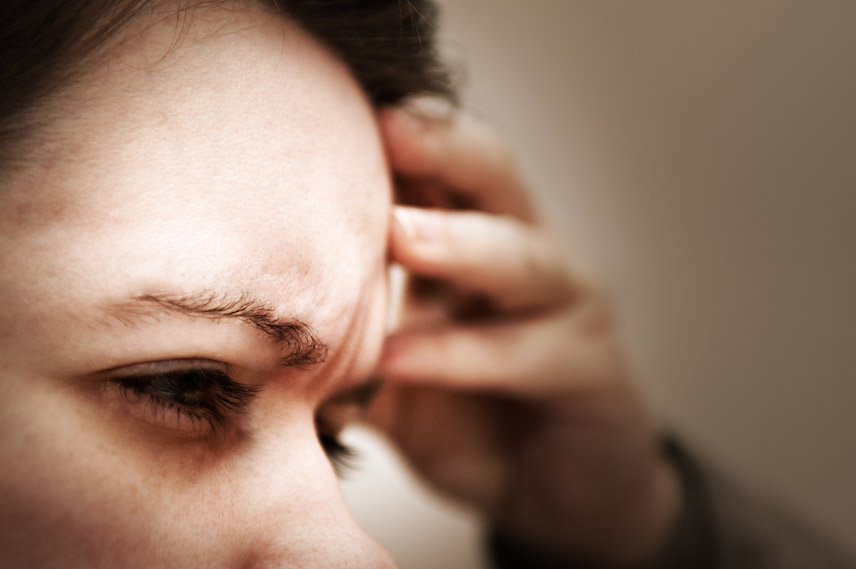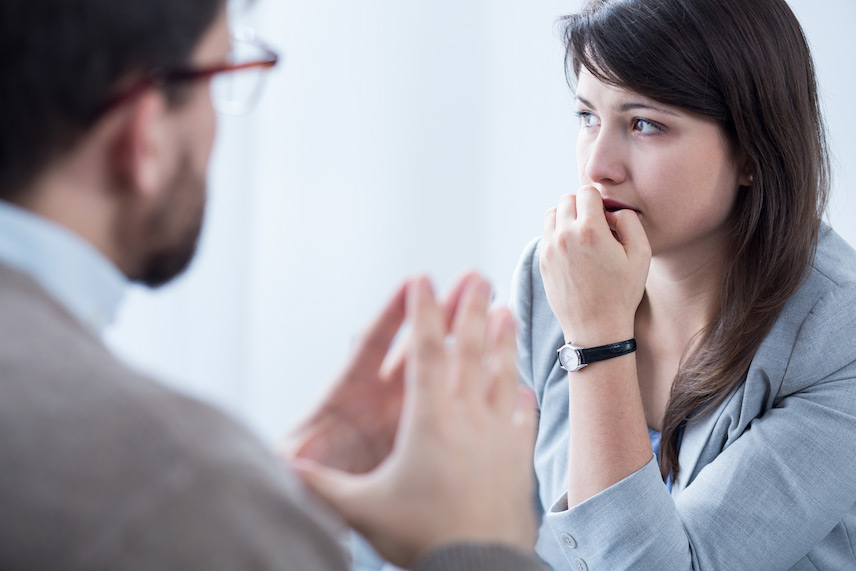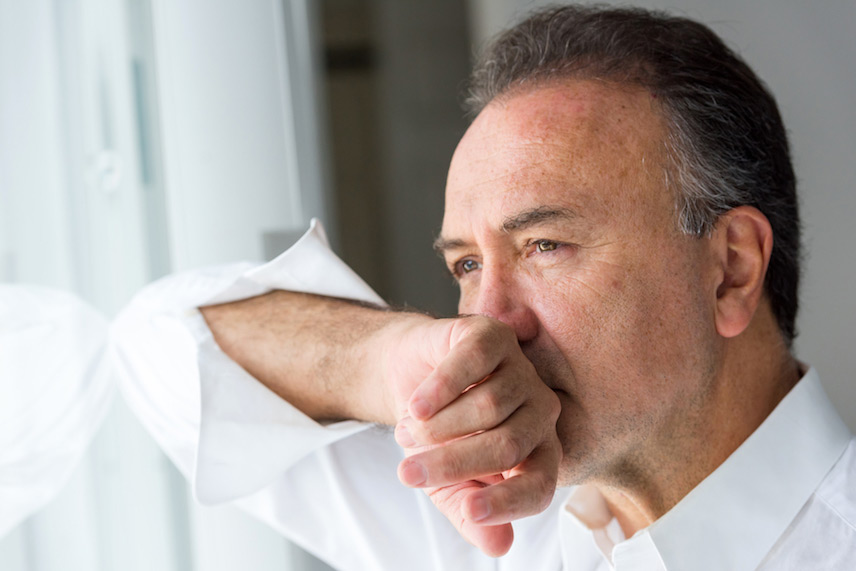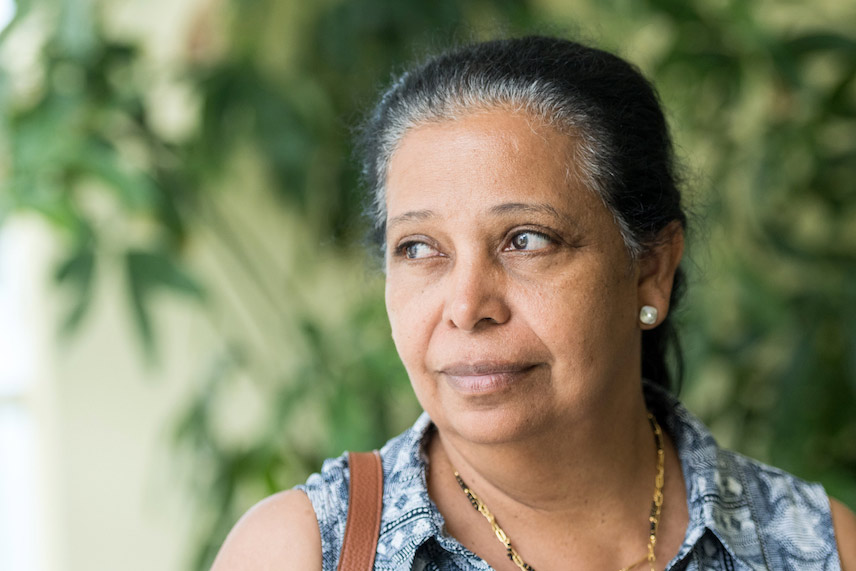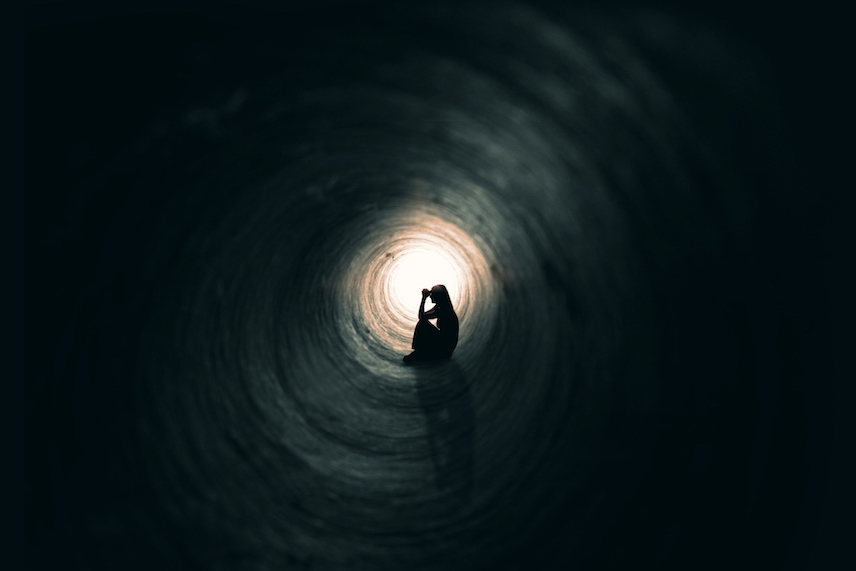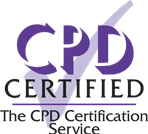[vc_row row_scroll_icon="no"][vc_column][vc_column_text] Depression can negatively impact all areas of your life, and when you’ve been living with it for years, it can feel like there’s no way out of it. Have you had problems with side effects from antidepressants? Do you feel like your treatment hasn't helped your symptoms? You could have Treatment-Resistant Depression (TRD). TRD is depression that doesn’t get better, even with treatment. From a clinical perspective, it is generally accepted that if you have depression that does not improve with at least 2 trials of antidepressants, you have TRD. Symptoms of treatment-resistant depression are the same as for depression and include (but are not limited to): Low mood for an extended period of time Lack of enjoyment from hobbies and activities you used to enjoy Trouble connecting with friends and family Feeling disconnected Avoiding socialising Feelings of dread or hopelessness about the future Disturbed sleep Anxiety Difficulty concentrating Irritability Poor short-term memory Do I Have Treatment-Resistant Depression (TRD) Or Is It Actually Bipolar Disorder? Do you actually have TRD? It is important to reconsider this diagnosis even before giving rTMS or any other treatment, because bipolar disorders are very often misdiagnosed as treatment-resistant depression. For example, one study in the US found that 40% of people diagnosed with major depressive disorder also had symptoms of subthreshold hypomania. Another study of 43,000 people found more than 7 out of 10 of those who are eligible for randomised controlled trials for antidepressants with “pure major depression” have subthreshold bipolar disorder. In another study of 5,635 people, 16% of those with a major depressive episode fulfilled the criteria for bipolar type I or II. In addition, about a third of those with major depressive disorder convert to bipolar disorder with time. Treatment for depression normally involves talking therapy and antidepressants. But for those with bipolar disorder misdiagnosed as TRD, the use of antidepressants can make their condition worse in the long run and increase mood cycling. Research has shown that the use of antidepressants, whether short-term or long-term, can worsen bipolar symptoms and be counterproductive, even harmful. With that in mind, we recommend that antidepressants should not be used for bipolar – even with mood stabilisers and antipsychotics. This is in keeping with current guidelines and follows on from the landmark STEP-BD study on bipolar treatment. CBT is not the answer either. Indeed, in the largest and longest study of CBT in bipolar disorders (which excluded rapid cyclers),...
[vc_row row_scroll_icon="no"][vc_column][vc_column_text] eTNS is a pioneering new service exclusively offered from The London Psychiatry Centre. This ground-breaking new treatment for epilepsy offers epilepsy sufferers from age 9 a leading-edge drug-free treatment for depression. Unlike other treatments for depression such as antidepressants, rTMS and ECT – which can worsen epilepsy, eTNS is licensed in Europe and the UK to treat resistant epilepsy – in effect treating both depression and epilepsy. [embed width="425" height="239"]http://www.youtube.com/watch?v=FO73guX4ydA[/embed] Video: eTNS quick start guide Depression treatment with eTNS is: Safe for patients with Epilepsy Effective Non-invasive Pain free Without side effects If you are an epilepsy sufferer experiencing depressive symptoms, you’ll know just how difficult life can be. Not only are you likely to be taking medication to treat your epilepsy, but there are instances where antidepressant medication and other interventions may be seen to be a danger to your epileptic condition. The incurable condition of epilepsy is challenging enough to cope with, without having to suffer symptoms of depression as well. Research has shown depression is significantly more common in people with epilepsy than in the general population. Nevertheless there is evidence that depression among epilepsy sufferers may often be underreported, or sometimes misdiagnosed. And unfortunately, if untreated depression often worsens over time.[/vc_column_text][/vc_column][/vc_row][vc_row row_scroll_icon="no"][vc_column][vc_empty_space height="20px"][eltd_accordion style="toggle"][eltd_accordion_tab icon_pack="" title="What Is Depression?"][vc_column_text]Major depressive disorder (also commonly known as clinical depression) is a disabling condition. It is different from a mere ‘low mood’, and is more than simply a passing feeling of sadness. Whilst in some cases the onset of depression may be due to a difficult situation or life event, once depression has actually taken hold, it becomes a more generalised condition. Put another way, a person suffering with depression doesn’t need to have had a ‘bad day’ in order to feel down. Major depression can affect every area of life, from your capacity for work and concentration, to maintaining relationships and socialising. If that wasn’t bad enough, depressive disorder has repeatedly been associated with higher risks of stroke and heart attack. Quite simply, it affects your all-round productivity and quality of life.[/vc_column_text][/eltd_accordion_tab][eltd_accordion_tab icon_pack="" title="Do I have Depression?"][vc_column_text]Depression is a complicated condition, and the experience of any two sufferers will never be exactly alike. That said, there are some general indicators that specialists have identified as commonly occurring – for example a persistently low mood, fatigue, decreased interest in life and difficulty concentrating. You may or may not already have been diagnosed with depression. If you are...
[vc_row row_scroll_icon="no"][vc_column][vc_column_text][/vc_column_text][/vc_column][/vc_row][vc_row row_scroll_icon="no"][vc_column][vc_column_text]There are a number of different treatments available for clinical depression. Since depression can be such a complex condition, different interventions may work for different people, and often, a combination is appropriate. At The London Psychiatry Centre, we take an integrated approach to your recovery, assessing every patient as a complex individual in their own right. Here at The London Psychiatry Centre, our wide variety of in-house experts enables us as a clinic to take an integrated approach to your treatment. Along with medication, psychotherapy or Repetitive Transcranial Magnetic Stimulation (rTMS), we can also provide personal training and nutritional planning wherever appropriate. No two people are the same, so here at The London Psychiatry Centre, no two treatment plans are exactly the same. Tailored care that fits you – that is our philosophy. [/vc_column_text][/vc_column][/vc_row][vc_row row_scroll_icon="no"][vc_column][vc_empty_space height="20px"][eltd_accordion style="toggle"][eltd_accordion_tab icon_pack="" title="Antidepressant medications"][vc_column_text]There are different ‘families’ of antidepressants. In recent years, ‘selective serotonin reuptake inhibitors’ (SSRIs) have become widely used. These drugs work to help keep serotonin in your system for longer, regulating the ‘feel good’ chemicals in the brain. Many patients report favourable results with these medications, but a significant proportion show no significant response. Still others are unable to tolerate the side effects that often accompany them, such as sexual dysfunction, stomach problems, disturbed sleep and so on. In any case, antidepressant medications are shown to work better long-term in conjunction with psychotherapy than as a sole solution. [/vc_column_text][/eltd_accordion_tab][eltd_accordion_tab icon_pack="" title="Psychotherapy (including Cognitive Behavioural Therapy)"][vc_column_text]There are a number of different approaches to ‘talking therapies’ and here at The London Psychiatry we cover a variety of approaches to address the individual needs of our patients. As one of the leading centres in the UK, we particularly favour approaches with strong evidences bases, such as cognitive behavioural therapy; but we do also work with a number of other disciplines as appropriate. Our specialists are experts in their fields, and when you come to us for assessment we will talk with you in depth, to help determine which approach is best for you. In any case, all talking therapies are concerned with uncovering and identifying unhelpful thought and behaviour patterns, releasing negative feelings, and developing new, positive strategies for dealing with life’s challenges. Other approaches to tackling depression, such as treatment with medication, tend to fare better when combined with some element of talking therapy. Conversely, talking therapies often tend to have higher rates of recovery when combined...
Depression doesn’t alway fit into a neat box and symptoms vary from person to person. Milder and less frequent types of depression include: Dysthymia: A mood disorder consisting of chronic depression but with less severity than Major Depressive Disorder. Chronic depression is diagnosed when a person has a prolonged period of repeated mild depression. If you are battling this condition, it is possible you may have become used to feeling significantly low, and be reticent about seeking medical help. But the truth is, you do deserve to be enjoying life and reaching your potential. We can help you to achieve recovery with therapy and medication. Depressive Disorder Not Otherwise Specified: This is a common phrase for other types of mild depression with some similar symptoms to the above mentioned categories, but that don’t fall into them fully. [vc_row row_scroll_icon="no" content_aligment="center" css=".vc_custom_1500373361164{margin-top: 20px !important;}"][vc_column][eltd_icon icon_pack="linear_icons" linear_icon="lnr-phone" size="eltd-icon-medium" type="normal" icon_animation=""][vc_column_text]If you believe you are experiencing one of these types of depression, help is available here at The London Psychiatry Centre. Make an appointment with a consultant by calling us on 020 7580 4224.[/vc_column_text][/vc_column][/vc_row]...
[vc_row row_scroll_icon="no"][vc_column][vc_column_text][/vc_column_text][/vc_column][/vc_row][vc_row row_scroll_icon="no"][vc_column][vc_column_text] Am I depressed? Take the PHQ-9 depression test to get a score which will give an indication of if you are depressed. Am I depressed? Take the PHQ-9 depression test to get a score which will give an indication of if you are depressed. Depression affects people in different ways. We’ve listed some of the common signs and symptoms of depression below. You most probably won’t have experienced all of these symptoms. On the other hand, you may have suffered other symptoms not included on the list. If you are suffering from depression, you may be likely to: Experience a low mood for extended periods of time Lose your ability to enjoy life – even activities you used to love, such as hobbies Feel difficulty in connecting and enjoying spending time with people, even those closest to you. Sometimes Depression sufferers can even lose their ability to feel love for family and friends. Suffer with anxiety. This can be extremely troubling, sometimes even more so than the low mood. It can at times make everyday activities almost impossible. Have problems with your appetite. Many people struggle to eat enough when they are depressed. Or others may comfort eat to try to counteract negative emotions. Experience disturbed sleep patterns. Some people sleep more when they are depressed. Others suffer with problems getting to sleep at night, followed by a tendency to wake very early. Be preoccupied with the past, often with a sense of regret or guilt Find it difficult or even impossible to concentrate Be irritable Suffer with poor short-term memory or a sense of absent-mindedness Avoid socialising Experience a sense of dread or hopelessness about the future Depression is also bad for physical health. We know, for example, that the risk of suffering a heart attack, or some other serious medical problem, is significantly increased by the presence of depression. To make matters even more challenging, depression is a condition which is often misunderstood. Sometimes even the people who love you the most don’t understand why you’re feeling so bad. They may wonder why you don’t seem to want to socialise, or you may be slow to get in touch. They may even become frustrated. Sadly, this can leave a sufferer feeling even more alone, and with a heightened sense of guilt. It’s important to remember that you are not alone. We are here to help you on your journey to recovery. [/vc_column_text][/vc_column][/vc_row][vc_row row_scroll_icon="no" content_aligment="center" css=".vc_custom_1500373361164{margin-top:...
The roots of depression are complex. It is often a combination of problems and stresses in life, along with particular traits in an individual’s personality (for example a tendency to be overly self-critical). Traumas and life changes can be contributing factors – a marital breakdown or a difficult boss for example. At times loss can trigger Depression; loss of a child, spouse, or a role in life perhaps. Sometimes a genetic predisposition is also responsible for depression. [vc_row row_scroll_icon="no" content_aligment="center" css=".vc_custom_1500373361164{margin-top: 20px !important;}"][vc_column][eltd_icon icon_pack="linear_icons" linear_icon="lnr-phone" size="eltd-icon-medium" type="normal" icon_animation=""][vc_column_text]If you are battling with depression, call us now on 020 7580 4224 to find out how our consultants can help you.[/vc_column_text][/vc_column][/vc_row]...
Major Depressive Disorder, often referred to as ‘Clinical Depression’ is a type of mood disorder. It can vary in its severity and precise patterns from person to person but there are common symptoms that psychiatrists have identified. Depression is sometimes an overused term. People may say they ‘feel depressed’ when referring to a passing low mood; at the end of a holiday or after Christmas for instance. However, actually being depressed in the clinical sense is something quite different. Clinical Depression (Major Depressive Disorder) can be incredibly disorienting and debilitating. It can affect a person physically, mentally and emotionally. It can drain your energy, making it literally difficult to get out of bed. It can get in the way of your ability to work, sleep, and enjoy close relationships. It is real, and quite complex. It is not something you ‘choose’ to have, nor something you can simply ‘snap out of’. What are the symptoms of depression? [vc_row row_scroll_icon="no" content_aligment="center" css=".vc_custom_1500373361164{margin-top: 20px !important;}"][vc_column][eltd_icon icon_pack="linear_icons" linear_icon="lnr-phone" size="eltd-icon-medium" type="normal" icon_animation=""][vc_column_text]If you have any questions or would like to book an appointment with one of our depression experts, simply call us on 020 7580 4224.[/vc_column_text][/vc_column][/vc_row]...


